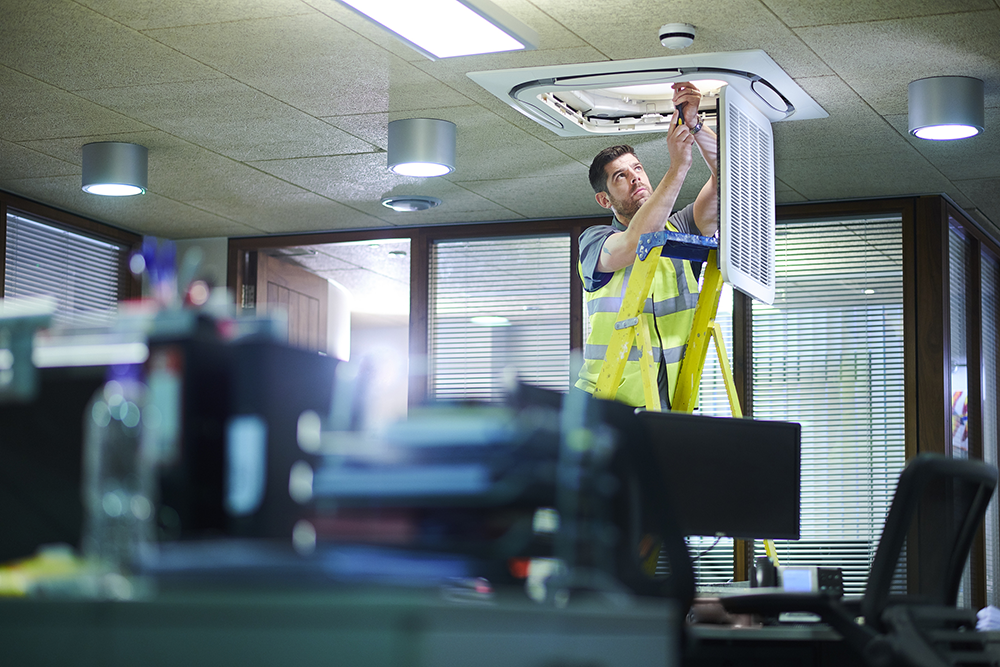Tertiary sector decree: AFNOR Energies at your side to boost your energy performance

The heatwaves of summer 2019 underline the fact that, in offices, shops, hotels and homes alike, as soon as an extreme weather event occurs, energy consumption (air conditioning in summer, heating in winter) can soar if the building is a sieve, or if the occupant has little regard for energy management. In this sense, decree no. 2019-771 published in the Journal Officiel on July 25, 2019 comes just at the right time: it asks owners and occupiers of tertiary-use premises to organize themselves so that their final energy consumption in 2030 is at least 40% lower than in 2010. And so on, in stages, until 2050, when we will have to reduce our emissions by 60%. The idea is to take action at various levels, on the building (insulation) but also on equipment and occupant behavior, so that these savings don’t compromise comfort or customer service.
Tertiary sector decree: know your consumption at t-zero
Originally prompted by the Grenelle 2 law of 2010, this decree, which was successively known as the “Gauchot decree” and then the “tertiary decree”, details the measures provided for in Article 175 of the ELAN law of November 23, 2018. A wide range of activities are subject to the law, provided the premises in which they are carried out have a floor area in excess of 1,000 m²: hotels, shops, tourist offices, bank branches, insurance companies, hospitals, administrative services… Only religious and defense activities are excluded. The text also provides for the possibility of modulating targets if the resulting actions have too great an impact on buildings, particularly historic monuments. It sets October1, 2019 as the starting date, and September 30, 2021 as the deadline for submitting the first consumption data (for 2020) to the authorities.
To be compliant by 2030, it’s best to leave in good time… And know your initial consumption levels! To do this, have an energy analysis of your assets carried out, which will identify the buildings you need to work on, or an energy audit, to determine the actions that will put you on the right trajectory. Under the terms of a 2012 European directive, companies with more than 250 employees (including those in the service sector) are required to carry out this exercise every four years. In view of the new decree, it’s also an excellent way of knowing where you’re starting from, even for a smaller player. AFNOR Energies Ingénierie can support you in both of these areas, thanks to its in-depth knowledge of methods for measuring and verifying energy savings. These are essential methods for calculating a reliable return on investment for building work or equipment replacement… because money is the lifeblood of any business!
Tertiary sector decree: measuring and verifying energy performance gains
The tertiary sector decree also requires owners (or their delegates) to enter energy consumption data into a computerized data collection and monitoring platform (on an annual basis from 2021). You’ll need to track your consumption to the nearest kilowatt-hour, and provide proof that it’s falling year on year. ” This means making sure in advance that the actions you initiate will bear fruit. This bonding and monitoring work requires a robust methodology that AFNOR Energies Ingénierie has perfectly mastered. “says Catherine Moutet, head of this unit within the AFNOR group.
Last but not least, like some major banking and hotel chains, think about ISO 50001: an energy management system that complies with this international standard, or is even certified as such, gives you all the keys you need to tackle the energy roadmap laid out in the decree. You’ll have the tools you need to define the roadmap and internal organization, initiate staff skills upgrades and behavioral changes, and sequence your actions on equipment.
Request support from AFNOR Energies Ingénierie
See our FAQ on the tertiary sector decree
See also our file “Getting organized for energy savings”.
© Getty Images